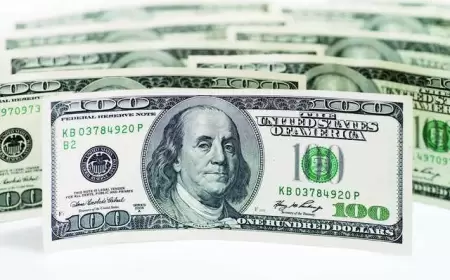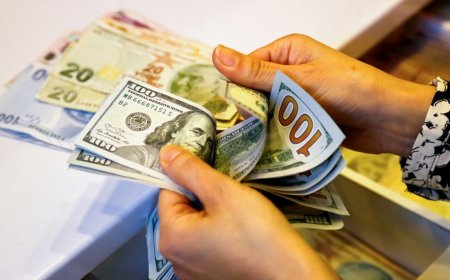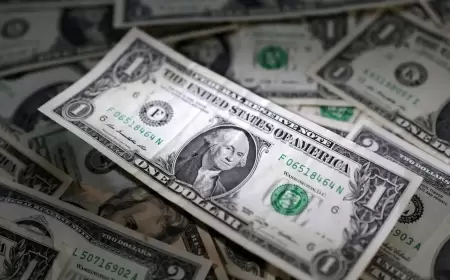Forex Dollar Dips, Yuan Slides: Market Moves After PBOC's Surprise and Fed Rate Cut Bets
Forex Dollar Drop and Yuan Slide - How China's PBOC Surprise and Fed Predictions Shake Markets

On Monday, the dollar went down as investors thought the Federal Reserve might lower interest rates soon. Meanwhile, China's currency, the yuan, went to a one-month low after its central bank, the People's Bank of China (PBOC), kept its policy rate steady, going against what the market expected.
China's central bank decided not to change interest rates when renewing medium-term policy loans, surprising many who thought they might lower rates to support China's post-pandemic economic recovery. This caused the onshore yuan to fall to 7.1813 per dollar, and its offshore version dropped close to its lowest point in a month.
Some important economic numbers about China, like its fourth-quarter GDP, December industrial production, retail sales, and unemployment rate, will be out on Wednesday. These numbers will help us understand how China's economy is doing.
In a bigger picture, traders are also watching for information about inflation in the UK later this week. People are curious about when major central banks around the world might start making it easier to borrow money this year.
The British pound went down a bit to $1.2730, although it's still close to the highest point in two weeks. The euro, another currency, was close to $1.10 and a little higher at $1.0964. The dollar's overall value, measured by the dollar index, went down a little to 102.30.
More people now think that the Federal Reserve might lower interest rates early this year, possibly in March. This idea got stronger after new data on Friday showed that U.S. producer prices fell unexpectedly in December, making the interest rates on U.S. government loans go down.
"Investors now believe that the Federal Reserve will start making it easier to borrow money in March, with a small cut in interest rates at every meeting," said Chris Weston, who works as a researcher at Pepperstone.
In Asia, the Japanese yen's value continued to be low at 145.15 per dollar. People think this is because the Bank of Japan will likely keep its policy settings the same at its upcoming meeting next week.
The Australian dollar, often used as a way to watch the yuan, went up a bit to $0.6695. The New Zealand dollar went down a bit to $0.6234.
On Wednesday, new information about China's economy will come out, and it might show that the Chinese economy is not doing very well. This could make it harder for currencies like the Australian and New Zealand dollars.
In a different place, the Taiwan dollar went down to its lowest point in more than three weeks, at 31.222 per U.S. dollar. This happened after the Democratic Progressive Party's (DPP) Lai Ching-te won the presidency over the weekend, even though his party lost most of its power in the parliament.
Experts think Taiwan's stock market might have some problems this week because of concerns that the government won't be able to make new policies. The market has gone up a lot in just over a year, and some people might sell their stocks because they are worried.
"The election result is mostly what people expected," said Aiden Wang, who works as a vice president at Cathay Securities Investment Trust, a big company that manages a lot of money.
Wang said that China has not done anything to hurt Taiwan so far. Still, now people need to wait and see what the new Taiwan government will do.
Also Read: SEC's Bitcoin Buzz: Dollar Steady, Bitcoin Drops - Catch Up on Today's Financial News































































